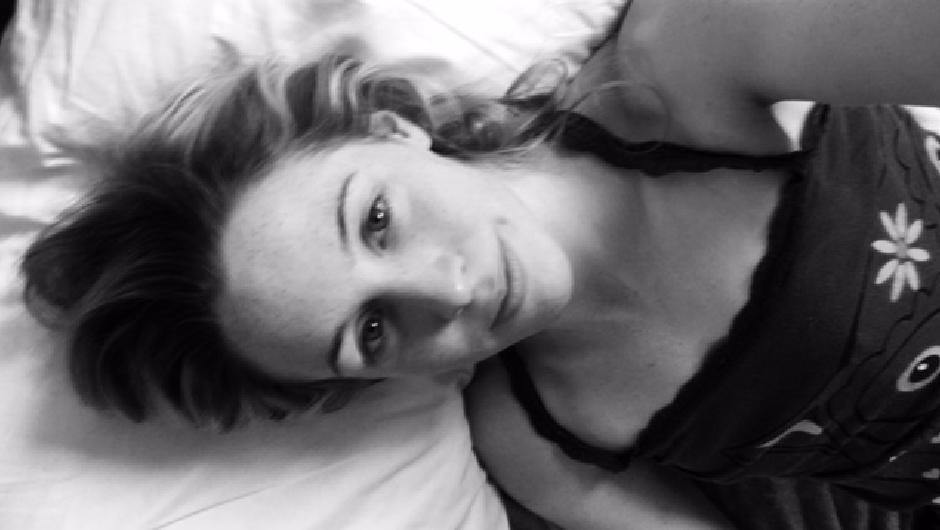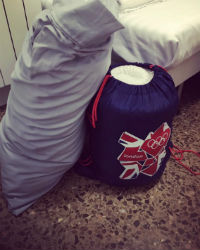Shopping Basket
You have no items in your basket.

It’s the one day of the week when she doesn’t touch water – not even in a glass – and the only morning the two-time Commonwealth champion swimmer permits herself the luxury of a lie-in… Sundays are precious to Hannah Miley, who has represented Great Britain three times at the Olympics.
“I avoid water from Saturday afternoon until Monday morning,” says Hannah, who specialises in the Individual Medley – combining four different stroke types. “It’s the only time during the week that I don’t set my Lumie alarm.
‘Sleep is a critical part of my training programme: the more you get, the more your body has a chance to rest and recover. If you only get six or seven hours’ sleep, you can accumulate what’s known as a ‘sleep debt’, which can lead to 14-hour sleep marathons at the weekend! I aim for a consistent eight or nine hours… more on Sunday mornings.”
Hannah’s gruelling daily training regime involves an early-morning swim from 5.45am until 8am, followed by a workout in the gym till 11am. After a second breakfast and a power snooze, she is back in the pool from 4.30pm to 6.30pm – arriving home for a dinner prepared by her fiancé at 7.15pm. “I aim to be in bed by 8.30pm to 9pm at the latest,” she says. “If I go to bed any later, I get less than eight hours’ sleep; then I’m grumpy and irritable. My fiancé is amazing; it’s such a help to be able to walk in and sit down to a ready-prepared plate of food.”
Like other athletes on the competition circuit, Hannah also practises what she calls ‘sleep hygiene’ – ensuring she has fresh bedsheets and a comfortable, supportive pillow that she takes with her everywhere she goes.
“I was in a hotel where I saw a note in my room that said: ‘Struggling to sleep? Dial 0’. I dialled out of curiosity and, a few minutes later, there was a knock at the door. Room service had sent up hot milk and honey. I thought: ‘This is amazing!’ Now, making sure I have something warm and cosy in my stomach is part of my wind-down routine, as well as a hot bath. I try to read a few pages of a book and stay off my phone for at least 15 minutes before bedtime, as the backlight makes your brain active; then I put my eye mask on and my earplugs in – ready to go to sleep on my Duvalay Bed Topper.”
Our successful appearance on the BBC’s Dragons’ Den in June 2012 was the first time that Hannah had heard about Duvalay, and our name cropped up again when she was Googling mattress toppers whilst undertaking altitude training in Sierra Nevada later that year. “I have awkward shoulders that tend to seize up, plus I’m a side sleeper,” she explains. “Duvalay’s website came up on my search for an answer to both problems, and I recognised the Travel Topper from Dragons’ Den straight away. I thought: ‘That’s the answer!’
 ‘When mine arrived, I was thrilled by how squishy it was! I was able to put another strap around it – making it compact enough to go in my drawstring bag. My dad is my coach and he chuckled when he saw it. We love thinking outside the box and coming up with creative ideas about how we can improve my performance in the pool. The Duvalay Travel Topper fits right in with our professional approach.”
‘When mine arrived, I was thrilled by how squishy it was! I was able to put another strap around it – making it compact enough to go in my drawstring bag. My dad is my coach and he chuckled when he saw it. We love thinking outside the box and coming up with creative ideas about how we can improve my performance in the pool. The Duvalay Travel Topper fits right in with our professional approach.”
Hannah returned to Sierra Nevada in January 2013 – taking her Duvalay Portable Mattress Topper with her. It has since become a regular fixture wherever she goes – most importantly, to all competitions.
“In a lot of countries, you find the mattresses are very firm,” she explains, “but now that I carry my bed with me, I know I’m going to be comfy, as well as getting a good night’s sleep – plus I have a Duvalay Bed Topper at home!”
A self-described ‘creature of habit’, Hannah says she loves nothing more than working hard. In days gone by, her sense of achievement came from a new personal best or medals; today, she says it’s the personal gratification that comes from being involved in the sport, as well as the ability to travel, feel fit and be aware of her own nutrition and sleep.
“Dad taught me to swim when I was three – purely from a health and safety point of view,” she recalls. “I joined my first club aged five and, while I had lots of other interests, by the age of 14 I’d decided to focus on swimming. When I competed in my first Commonwealth Games aged 16, I decided: ‘I’ll do whatever it takes to keep doing this.’
‘Many a time I’ve seen Friday-night stragglers making their way home when I’m on my way to the pool for Saturday-morning training. I think: ‘I’m starting my day just as you’re finishing yours.’ I’m very lucky to have such supportive friends – some of whom have known me since nursery. I can’t do Friday nights out, but true friends always find a way to include you.”
It’s this continual self-sacrifice that has seen Hannah selected once again for a major international competitive event, which is taking place next month. Although she is, quite naturally, feeling nervous, the good news is that it’s not impacting on her sleep.
“It’s like a performance: I do my best and swim as fast as I possibly can,” she explains. “I’m not co-ordinated on land – I can trip over on a flat floor – but in the pool, I feel graceful. I go into my own head… play movies in my mind. I love the free-flowing feel, as well as being part of a team. When it comes to my swimming, my dad and I have a saying: ‘Give it an honest effort if you’re committed’.”
And having had the pleasure of speaking to this extraordinary athlete, who loves her sleep almost as much as we do, we have no doubt as to her level of effort or commitment.
Best of luck Hannah from all at Duvalay!